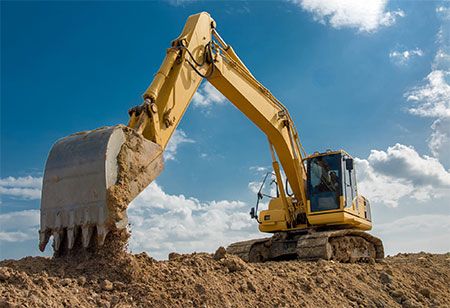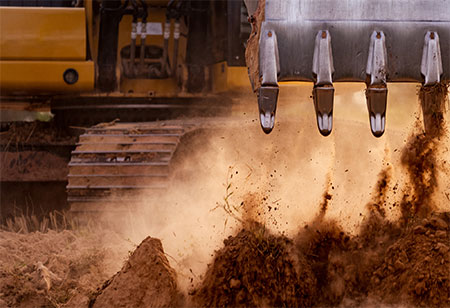
Streamlining excavator operations is a crucial step toward achieving re- markable efficiency and productivity on construction sites. As the con- struction industry constantly evolves, adopting key strategies to enhance excavator performance can lead to significant time and cost savings.
In this article, you’ll discover some practical approaches to optimizing ex- cavator operations, ensuring your projects stay on track and within budget.
Understand Your Equipment Inside and Out
A deep understanding of your excavator’s capabilities and limitations sets the foundation for efficiency. Familiarize yourself with the operator’s manual, as it’s packed with invaluable information on machine maintenance, optimal operating practices, and safety protocols. By grasping these details, you can push your equipment to its fullest potential while avoiding costly downtimes due to mechanical failures.
Utilize Technology and Attachments
When it comes to optimizing excavator operations, harnessing the power of technology and the strategic use of attachments cannot be overstated. Here’s how these elements play a pivotal role:
1) GPS and Machine Control Systems: These technologies offer precision that manual operation simply can’t match. They allow for exact digging depths and slopes, significantly reducing over-digging and minimizing the need for manual grade checking. It speeds up operations and ensures that the work is done right the first time, saving both time and resources.
2) Smart Attachments: With advancements in attachments for excavators, operators can now switch between different functionalities with ease, transforming their excavator into a multi-purpose machine. For example, quick couplers enable operators to change attachments quickly without leaving the cab, while hydraulic breakers, augers, and grapples expand the excavator’s utility far beyond traditional digging tasks.
Integrating these technological advancements and utilizing a wide array of available attachments can achieve unprecedented levels of efficiency and versatility. This approach may help boost productivity and contribute to the overall success of construction projects.
Regular Maintenance Is Key
Sticking to a strict maintenance schedule ensures your excavator runs smoothly and efficiently. Routine checks and timely repairs of critical components like hydraulic systems, engines, and undercarriages can drastically reduce the likelihood of unexpected breakdowns. Also, always keep an eye on wear and tear on attachments and replace them when necessary to maintain peak performance.
Train Your Operators
Skilled operators are crucial in maximizing excavator and construction productivity. Investing in regular training sessions keeps your team updated on the latest operating techniques and safety standards.
Focus on practical, hands-on training that covers efficient digging, lifting techniques, and proper machine handling to minimize fuel consumption and maximize output. Key areas to emphasize in training include:
1) Precision Operation: Teach operators to execute tasks with accuracy, such as precise digging and material placement, to reduce the time and fuel needed for corrections.
2) Machine Awareness: Encourage a comprehensive understanding of the excavator’s feedback systems, including monitoring gauges and indicators, to prevent overuse and recognize early signs of potential issues.
By focusing on these areas, operators can contribute to the overall efficiency and longevity of the excavator, ensuring that projects are completed effectively and within time constraints.
Optimize Job Site Layout
Efficient job site management plays an essential role in streamlining excavator operations. Plan the site layout to minimize the distance between digging, dumping, and material processing areas. This reduces the time spent maneuvering the excavator around the site, leading to quicker task completion and reduced fuel consumption.
Embrace Preventive Measures
Embracing preventive measures not only safeguards the well-being of your crew but also ensures the longevity and reliability of your excavator. By prioritizing safety and preventive care, you can avoid the costly downtime and repairs often associated with accidents and equipment misuse. Consider implementing the following strategies:
1) Conduct daily pre-operation inspections to identify and address potential issues before they escalate into major problems. Look for signs of wear, leaks, or damage to components such as hoses, buckets, and tracks.
2) Implement a strict compliance policy with safety protocols, including the use of personal protective equipment (PPE) and adherence to operational guidelines. It minimizes the risk of injury and ensures your team is prepared to handle the excavator safely under various conditions.
3) Encourage open communication among your team members about safety concerns and potential hazards on the job site. A culture that values safety feedback can identify and mitigate risks more effectively.
By incorporating these measures into your daily operations, you can create a safer work environment that promotes efficiency and productivity through the careful management of your excavator fleet.
Efficient Fuel Management
Fuel costs account for a significant portion of operating expenses. Adopt strategies like using eco-mode settings, avoiding excessive idling, and maintaining optimal engine speeds to reduce fuel consumption. By closely monitoring fuel usage and implementing these measures, you can achieve considerable savings over time.
 Evaluate and Adapt
Evaluate and Adapt
In the construction market, continuous evaluation of your operations and willingness to adapt are vital for sustained efficiency. Collect data on performance metrics such as fuel consumption, task completion times, and maintenance costs.
Use this information to identify areas for improvement and implement changes accordingly. Be open to trying new techniques, technologies, and attachments to find what works best for your specific needs.
Conclusion
Streamlining excavator operations requires a multifaceted approach, combining knowledge of your equipment, regular maintenance, skilled operators, and the strategic use of technology. By adopting these key strategies, you can enhance efficiency, reduce costs, and keep your projects moving forward smoothly. The goal is to work smarter, not harder, and these tips provide a solid foundation for achieving just that.
We use cookies to ensure you get the best experience on our website. Read more...